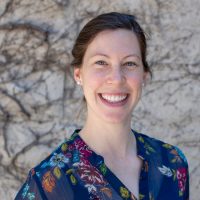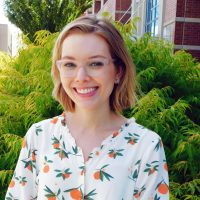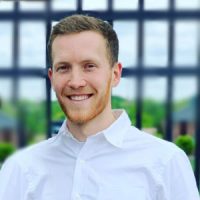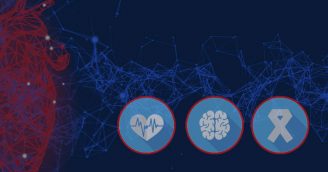19 Mar Meet the 2020-2021 Cohort of the START TL1 Mentored Research Training Program
The overall goal of the START TL1 Program award is to increase the number of well-trained clinician-scientists who can lead the design and oversight of future clinical investigations critical to transforming the translational process so that new treatments and cures for disease can be delivered to patients faster.
Meet the 2020-2021 Cohort
Lauren Sara

Greetings! My name is Lauren Sara, and I am a PhD Candidate in the Exercise & Rehabilitation Sciences program at Marquette University. I received a clinical Doctorate in Physical Therapy at Marquette in 2012 and completed an Orthopaedic Physical Therapy Residency at the University of Chicago Hospital in 2015. The advanced training I received as a PT Resident convinced me of the value of translational research. However, it also unveiled inadequacies in the adoption of research into clinical practice and exposed a multitude of unanswered clinical questions. I returned to academia with the goal of pursuing clinical translational research and facilitating the dissemination of these findings into the clinic.
I have completed the didactic portion and have successfully passed into the candidacy phase of my PhD. My research evaluates an overuse condition of the Achilles tendon, known as Achilles tendinopathy. Our study evaluates strength and endurance, pain perception, and the mechanisms of these as they relate to this chronic, painful condition.
I was welcomed into the 2020-2021 cohort of CTSI TL1 Fellows in July 2020, and I am grateful for the opportunities that have and will continue to come from this appointment. I am especially looking forward to the training provided for communication and data management skills, including multiple opportunities for presentations, feedback in grant and manuscript writing, and biostatistics consultation. The community engagement and networking opportunities will also prove invaluable as I progress from a research trainee toward an independent investigator who is keen on enhancing translational research.
Juan Pablo Zapata

Juan Pablo Zapata is currently a graduate student in the Clinical Psychology, PhD program at Marquette University. His work focuses on mental health disparities and HIV prevention in the Latino community. Recently, Juan was awarded an NIH Start TL1 Award to investigate the relationship between biological and cultural variables to assess how these processes may impact health outcomes relevant to pre-exposure prophylaxis, an HIV prevention medication among Latino men. This study is in partnership with a Milwaukee-based non-profit organization as part of a community-based participatory approach. The framework for this investigation is drawn from a comprehensive systematic literature review that Juan conducted, which is currently under review on research related to Prep AMONG Latino men. This review was accepted for presentation and scholarship from the National Latinx Conference on HIV/HCV/SUD/. This past summer, Juan was awarded an NIMH award to work with a researcher from George Washington University and the University of Puerto Rico to investigate occurrences of discrimination and mental health disparities and their impact in PrEP and HIV prevention. As a research trainee in this program, he is collaborating with researchers to validate a Spanish instrument to assess PrEP-related attitudes. Currently, there are no measures that have been developed in Spanish to increase the use of PrEP in Latino men. As part of his research, Juan is also interested in clinical practice that is evidence-based and research with direct clinical relevance. He is involved with the Milwaukee Trauma Outcomes Project (MTOP) with Dr. Terri deRoon-Cassini as a clinical researcher on an NIH study. This investigation focuses on psychosocial and neurobiological targets for early intervention to prevent PTSD after trauma among racial and ethnic minorities. Juan is in the process of applying for a pre-doctoral internship, where he will continue to foster clinical skill(s) and prepare for a post-doctoral fellowship to prepare him for a tenured-track position at an academic medical center.
Kate Webb

I am currently a third year doctoral student in the University of Wisconsin Milwaukee Department Of Psychology’s Neuroscience program and a trainee in the CTSI START TL1 Mentored Translational Research Training Program.
As a graduate researcher in Dr. Christine Larson’s laboratory, I conduct translational research using neuroimaging techniques to better understand the neural underpinnings of PTSD in individuals who have experienced a traumatic injury. My latest research projects take a social-justice oriented approach to translational neuroscience. By using quantifiable proxies of social inequities, including racial discrimination, socioeconomic position, and neighborhood variables, I investigate potential mechanisms that may help explain why racial and ethnic minorities are at a heightened risk of developing PTSD.
As a TL1 scholar, I can devote the time and resources necessary to grow as a successful neuroscientist. I have received support for in-depth training courses in neuroimaging and statistical analysis that will strengthen my ongoing research activities and provide a lasting impact on my career. Being a TL1 scholar has granted me the opportunity to collaborate with other trainees across disciplines, develop my research questions, and improve my science communication skills.
Most importantly, as a TL1 scholar I have learned how to better engage with my community and create meaningful links between my research and organizations directly serving the greater Milwaukee area.
Kelsey Meacham

I am a current fourth-year student in the Medical Scientist Training Program at the Medical College of Wisconsin and a START TL1 award recipient. As an aspiring physician scientist, the CTSI TL1 Research Training Program has given me a unique and in-depth look into conducting translational research in an academic setting. The TL1 program offers numerous workshops, seminar series, and an individually focused training plan to help me further my own academic and career goals. I have had the opportunity to improve both my writing and presentation techniques and feel better prepared to communicate my research findings with other scientists, clinicians, and those within the community.
Being a TL1 scholar has also provided me ample resources and the ability to focus my time in the laboratory developing an inhibitor of a mitochondrial fission protein. I hope this work will be beneficial for research scientists, as well as lay the groundwork for a possible therapeutic agent.
I am confident that that the skills I have learned as a TL1 scholar have helped prepare me for a rigorous research and clinical career where I am able to make meaningful contributions to science and my community.
Tom Ruopp

Going from research in a lab to real-world solutions that can benefit those in need is a long and arduous process. A large contributing factor to that latency is a lack of ability for researchers to properly focus on their research instead of applying for grants, being a TA, or other obligations. That is why the Scientific Teams Advancing Research Translations (START) TL1 training program has been essential to my work. This funding gives me the ability to work every day towards getting my research from inside the lab to a clinic where it can be beneficial to the most people.
My name is Tom and I am entering my fourth year as a PhD student in the Biomedical Engineering program at Marquette University. My work focuses on rehabilitation of the lower extremities of people who have had a stroke. Specifically, I am further developing and testing a patented robotic split-crank pedaling device. With funding from the START TL1, I am continuing to learn the timeline of translating research into reality. Courses on grant preparation, Science Café’s, and conferences have given me perspective on how other researchers in my field translate their work. The time and resources granted to me through the TL1 program have been and continue to be a vital component to advancing my research.











